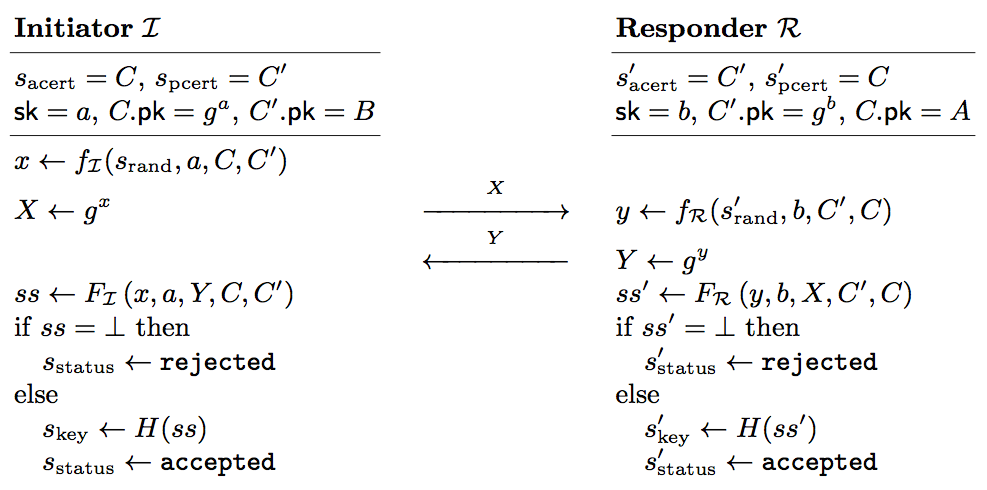
Douglas Stebila
ASICS: Authenticated key exchange security incorporating certification systems
Abstract
Most security models for authenticated key exchange (AKE) do not explicitly model the associated certification system, which includes the certification authority (CA) and its behaviour. However, there are several well-known and realistic attacks on AKE protocols which exploit various forms of malicious key registration and which therefore lie outside the scope of these models. We provide the first systematic analysis of AKE security incorporating certification systems (ASICS). We define a family of security models that, in addition to allowing different sets of standard AKE adversary queries, also permit the adversary to register arbitrary bitstrings as keys. For this model family we prove generic results that enable the design and verification of protocols that achieve security even if some keys have been produced maliciously. Our approach is applicable to a wide range of models and protocols; as a concrete illustration of its power, we apply it to the CMQV protocol in the natural strengthening of the eCK model to the ASICS setting.
Keywords: authenticated key exchange (AKE), unknown key share (UKS) attacks, certification authority (CA), invalid public keys, PKI
Reference
Colin Boyd, Cas Cremers, Michèle Feltz, Kenneth G. Paterson, Bertram Poettering, Douglas Stebila. ASICS: Authenticated key exchange security incorporating certification systems. In Jason Crampton, Sushil Jajodia, Keith Mayes, editors, Proc. 18th European Symposium on Research in Computer Security (ESORICS) 2013, LNCS, vol. 8134, pp. 381-399. Springer, September 2013. Full version published in International Journal of Information Security. © Springer.
Download
BibTeX
Funding
This research was supported by:- Australian Research Council (ARC) Discovery Project grant DP130104304
- ETH Research Grant ETH-30 09-3
- EPSRC Leadership Fellowship EP/H005455/1
